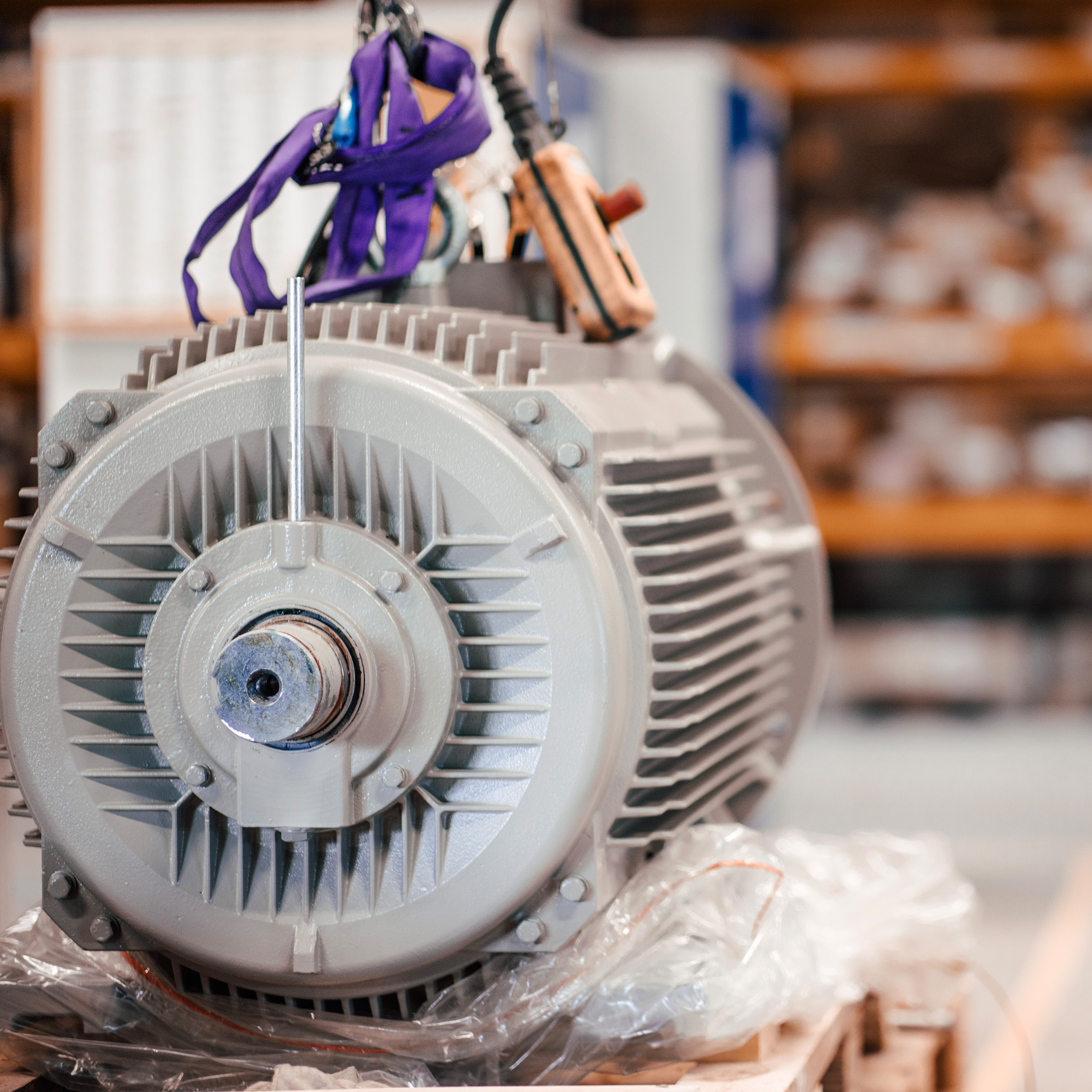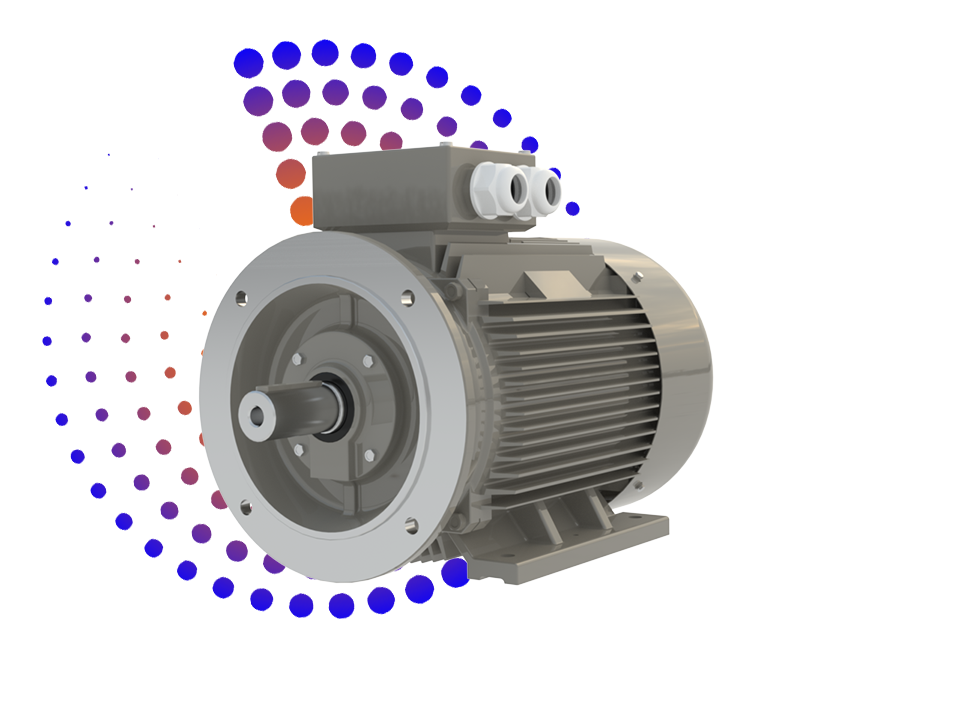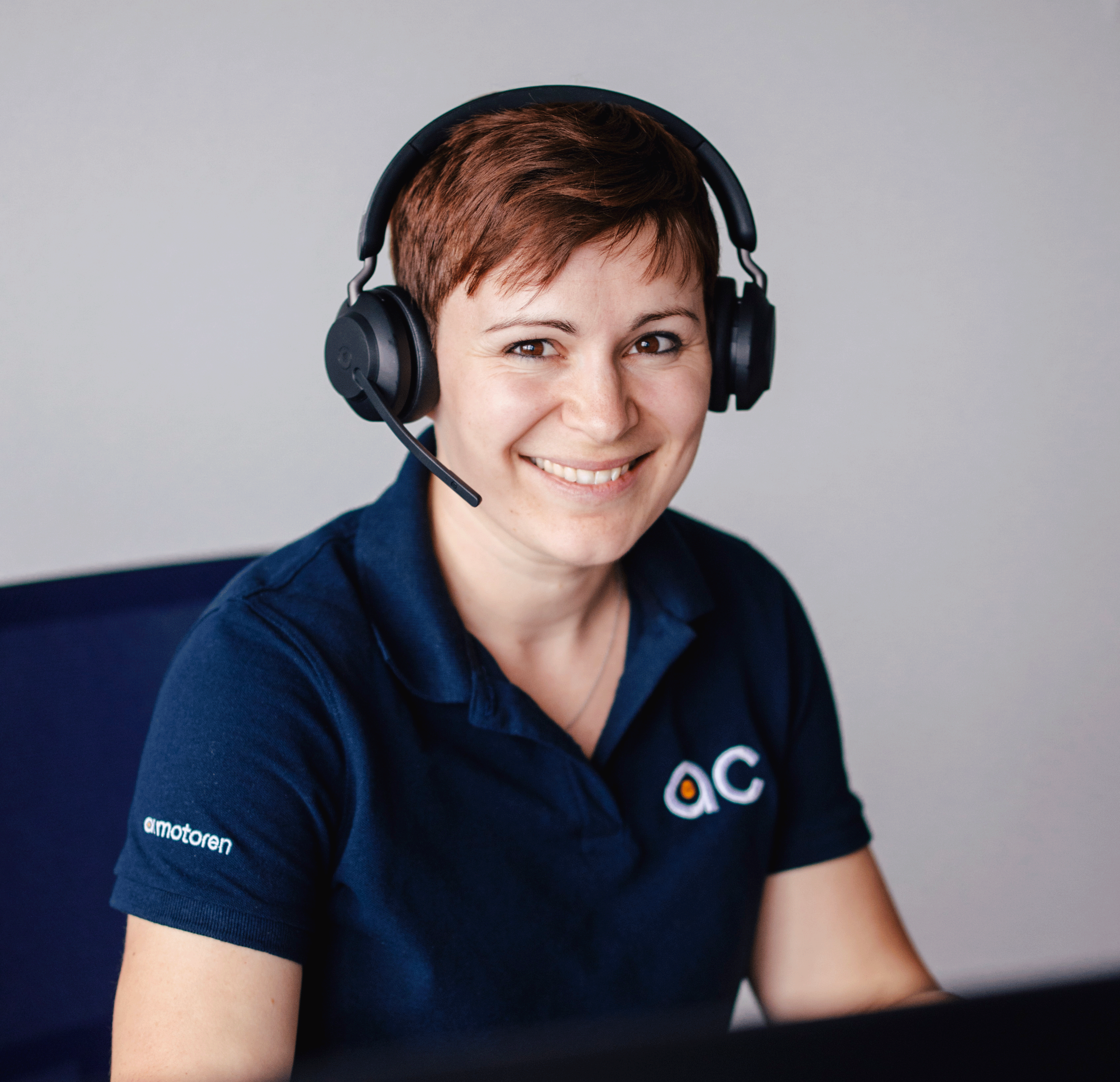THE AC MOTOREN TEST BENCH FOR PRECISE TESTS.
An electric motor must work reliably under real conditions. Our test bench enables measurements in accordance with DIN EN 60034-2-1. By simulating various load profiles, we test how power, torque and efficiency behave during operation. Motor-inverter combinations are also tested to ensure that they are optimised for the respective application.
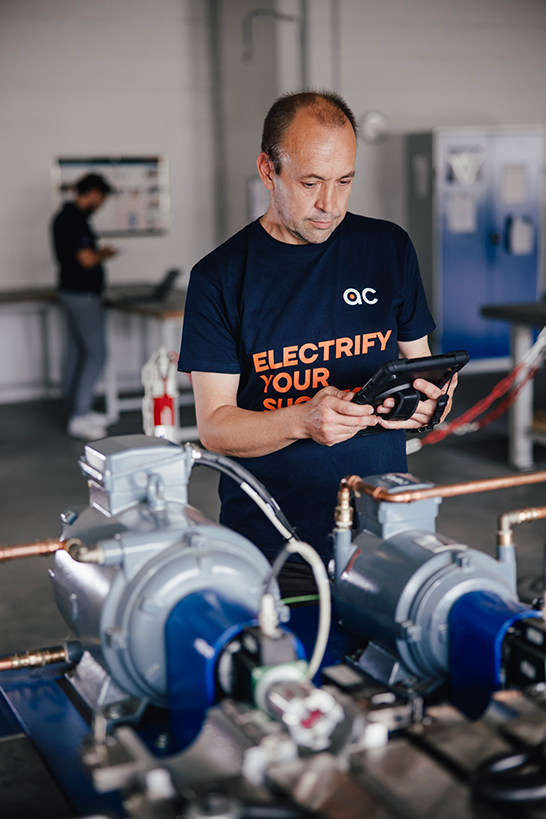
WHY TEST BENCH?
SO THAT YOUR DRIVE DELIVERS WHAT IT PROMISES.
Our test bench analyses all relevant parameters - from electrical measurements to thermal loads. We rely on the expertise of our experienced technicians, who precisely analyse every measurement and identify potential weak points at an early stage. This allows risks to be minimised and adjustments to be made in a targeted manner.
HARD TEST
TESTING ELECTRIC MOTORS DOWN TO THE LAST DETAIL.
Interaction at a glance
"On request, we also test the interaction with inverters, load profiles and cooling - this is how we recognise interactions that distinguish theory from practice."
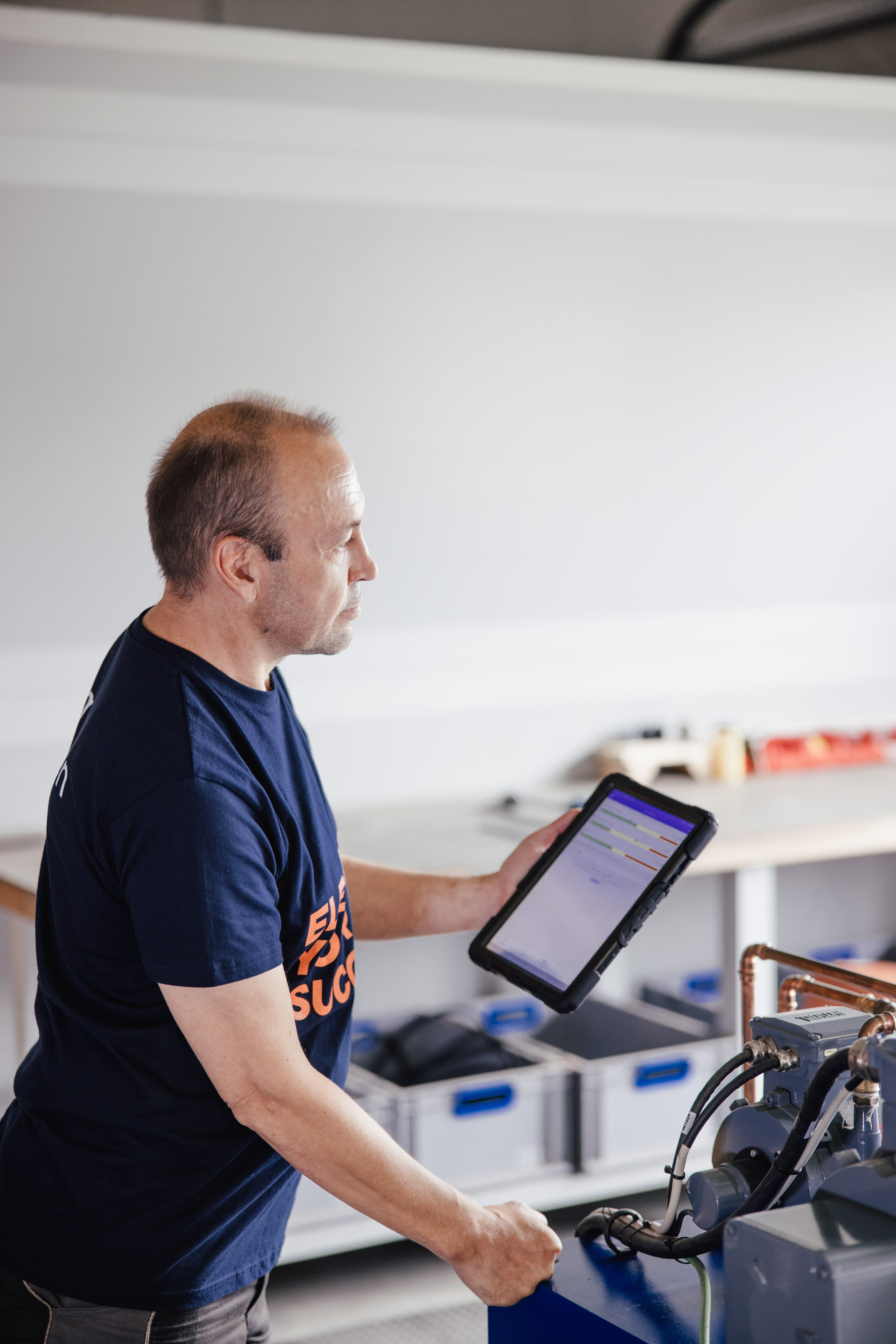
FAQ
FREQUENTLY ASKED QUESTIONS ABOUT OUR TEST BENCH
Here you will find the most important answers about our test procedures, technical possibilities and the added value for your application.
A test bench enables realistic tests to be carried out to ensure the quality of electric motors. This includes efficiency measurements under load, simulation of operating points and product optimisation. The test bench also helps to identify energy-saving potential and to search for specific causes in the event of complaints.
Our tests ensure more reliable products and help to optimise engine design in terms of economy and ecology. Customer applications can be precisely simulated and improved on the test bench. Contract measurements for third-party products are also possible on request. Measurement reports can be produced in German, English, French, Polish and Chinese.
We measure both electrical and mechanical parameters such as voltage, current, power factor, efficiency, torque and speed – both at idle and under system efficiency of motor-converter combinations.
Our test bench operates energy-efficiently in four-quadrant mode, feeding absorbed energy back into the grid. We test motors from 120 W to 55 kW, with speeds up to 9000 rpm (up to 49 Nm) or (from 50 Nm). The torque is measured directly via three measuring shafts (10 Nm, 50 Nm, 1000 Nm). In addition, a water-cooled design ensures low noise levels.
After the motor has been mechanically and electrically connected, the motor characteristics are entered into the test software. An automated test sequence is then created and carried out. The measurement results are compiled in tables and diagrams, analysed and saved as a multilingual test report (.pdf). Finally, the test specimen is dismantled.
MODIFICATION TO
PERFECTION
We modify our electric motors exactly to your
requirements - quickly, precisely and reliably.






